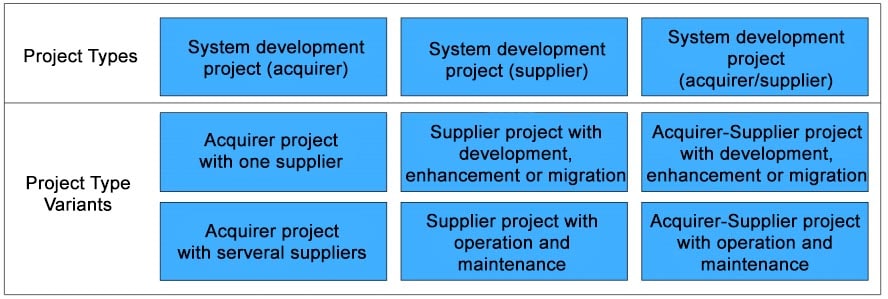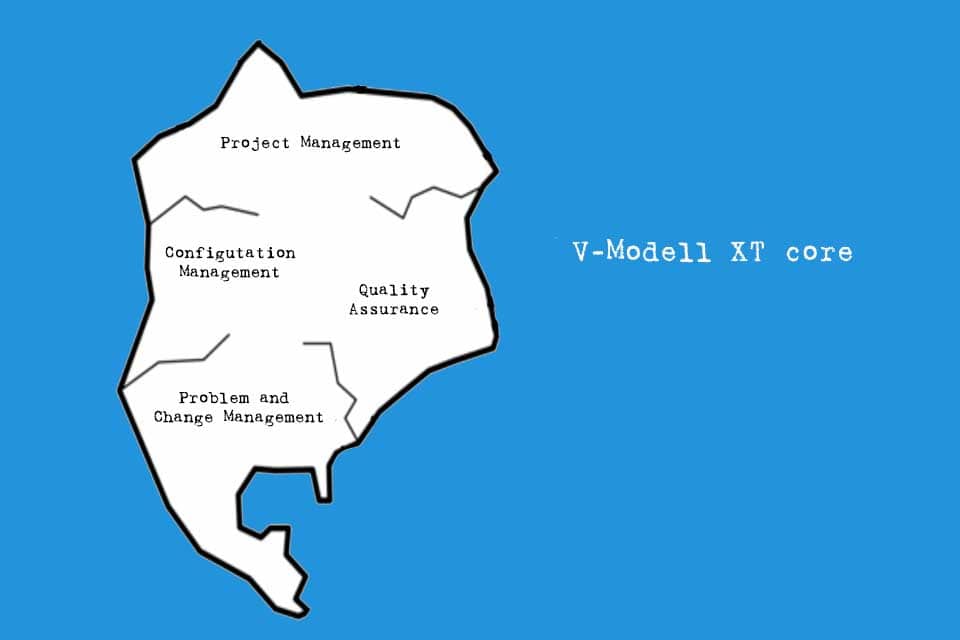What is a Project Type Variant?
Smartpedia: For the project types in V-Modell XT, there are so-called project type variants. They define the parameters and thus the process flow of a project.
General conditions for workflows in V-Modell XT projects
Projects can be characterised and classified by project type. Such classification is often based on the complexity, novelty, or structural scope of a project. In V-Modell XT, the German standard for planning and executing system development projects, project types are differentiated according to the role played by one party in the project. For the project types in V-Modell XT, there are individual variants, so-called project type variants. The project type variants are used to define the general conditions and therefore the process flow of a project.
Project Type Variants in V-Modell XT
In the current version 2.3, V-Modell XT defines a total of six project type variants:
- Acquirer project with a supplier
- Acquirer project with several suppliers
- Supplier project with development, enhancement or migration – e.g. with incremental development, component-based development or prototype development
- Supplier project with operation and maintenance
- Acquirer-Supplier project with development, enhancement or migration
- Acquirer-Supplier project with operation and maintenance
In tailoring, the project type, its project type variant, and its specific project characteristics determine the selection of project-relevant process modules.
Since V-Modell XT Version 2.1, the introduction and maintenance of an organization-specific process model is no longer supported by project type or project type variant, but by an independent model (V-Modell XT ORG).
Notes:
If you like the article or would like to discuss it, please feel free to share it in your network. And if you have any comments, please do not hesitate to send us a message.
Here you will find additional information from our Smartpedia section:



